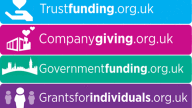Marketing & communications, Marketing
4 tips to improve your marketing and communications as a small charity
Getting the word out about your charity can be difficult, especially if you have limited resources. However, if you bear in mind a few key principles you can dramatically improve the way you communicate with your audience.
Fundraising and raising awareness go hand in hand. If people don’t know about you then they how can they support you? … It’s that simple!
Behind every successful charity is an understanding of their supporters and how to communicate with them effectively. It’s important that you know how to market and communicate your cause, strengths and skills; as well as understand and know your audience.
Large charities and arts organisations usually tend to have a marketing, communications and PR teams. They can run marketing and PR campaigns, engage with sponsors, produce e-bulletins, develop websites, deal with press , organise events and keep social media up to date.
Trying to replicate these marketing functions is overwhelming for small charities as it is rare for them to have those extra skills and resources. In small charities, marketing and communications is often done on an ad hoc basis or by staff who have other duties.
Go back to basics
It might seem like too much work but going back to basics is sometimes the best way to really understand what is right for you. You’ll also avoid reinventing the wheel. Ask yourself questions like:
- What is your cause and specific needs?
- How are you raising awareness about it?
- Who are your beneficiaries and who are your supporters?
It’s important to understand what’s involved in the basics of marketing and how that fits in within your organisation.
Having a communication plan is also key no matter how large or small your team is. Marketing and communications cannot be ad hoc, because having a time frame is key to effectively reaching your audience.
Know your audience
Knowing your audience is vital for your marketing and communication success. How can you communicate effectively if you don’t know who your audience is and what they respond best to?
Prioritise what you need to communicate, and workout the best ways to reach YOUR audience.
Review your strengths and resources
Don’t underestimate your existing strengths, skills and resources just because you are a small charity. Look at what has worked for you in the past and what your supporters have responded well to. Review what resources you already have, these could include a great website or loyal volunteers and see how you can further enhance and build on those strengths.
Focus and prioritise
Once you have understood which tools and methods work best for you, then ensure you prioritise and focus. Don’t spread yourself too thinly. The key is understanding your organisation well enough to know what you need to communicate, and at which point in time.
Once you have a plan no matter how big or small your charity is, you’ll make better use of your time and be more effective.
